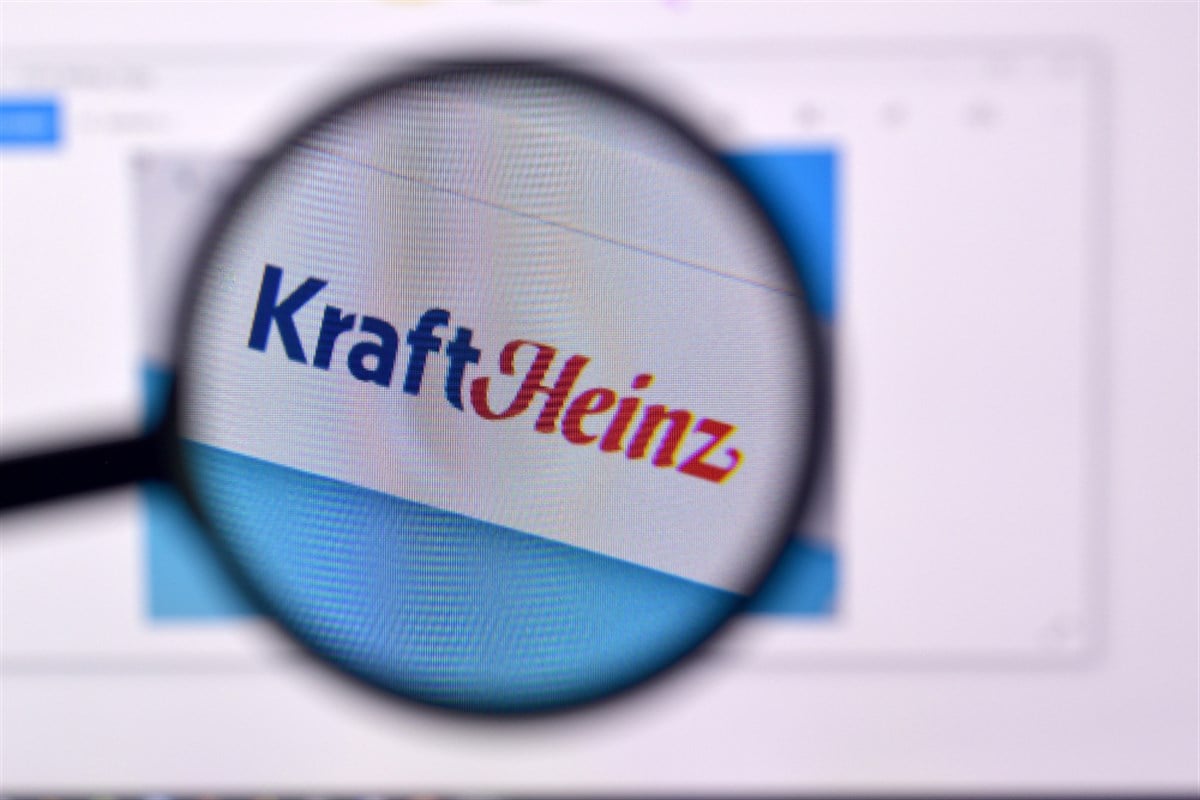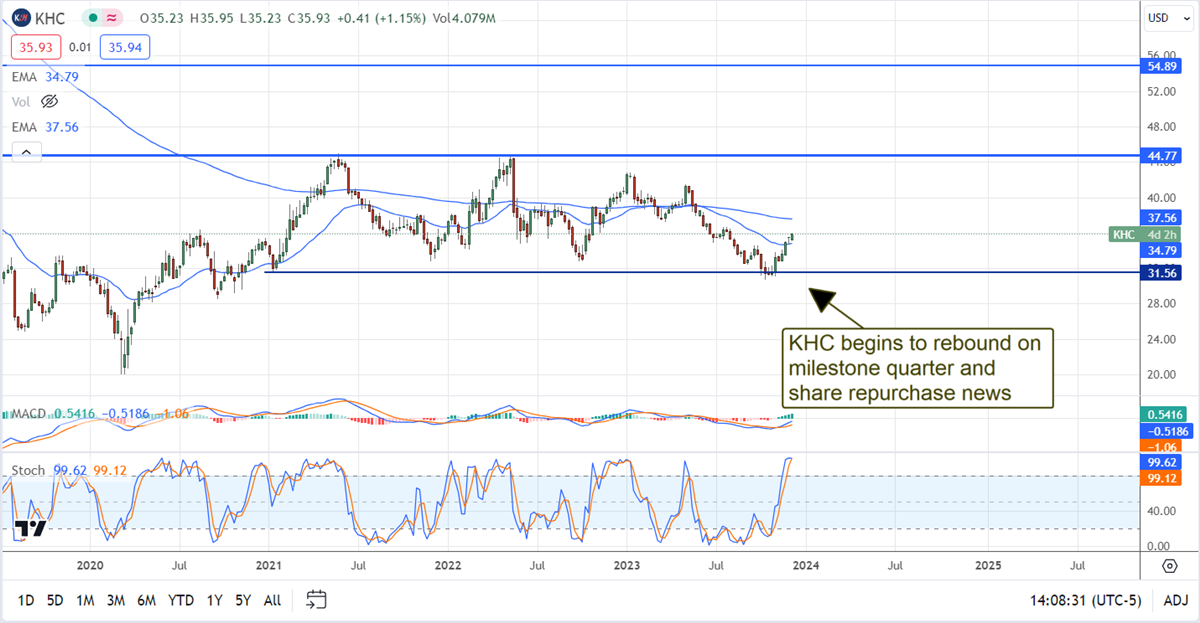
Kraft Heinz's (NASDAQ: KHC) Q3 results were met with the same lack of enthusiasm as they’ve seen for the last year. While the news aligns with the long-term outlook for operational improvement, growth, earnings, capital returns and price-multiple expansion, the market didn’t get too excited. Not until the company announced its stock repurchase plan, that is, a plan that makes the Q3 period a watershed event.
A watershed is an event, often seen in hindsight, that alters the outlook. What comes after is not the same as what came before. In this case, investors wondering when Kraft would start upping the capital returns got their answer, and it is now. Outgoing CEO Miguel Patricio hailed the quarter as a milestone because the company strengthened its balance sheet to reach the target 3X net leverage, opening cash flow for other purposes such as share repurchases and dividend increases: share repurchases are what the board authorized.
Kraft Heinz authorizes repurchases; dividend increases are next
Kraft Heinz’s $3 billion share repurchase authorization was revealed shortly after the Q3 results and has the market in rally mode. The $3 billion will be spent over the next 3 years and is worth upwards of 6% of the market cap, about 2.25% annually, if split evenly over the coming fiscal periods. Repurchases will be at the board's discretion, depending on cash and outlook and after targeted CAPEX, acquisitions, and the already substantial 4.5% dividend, so they may be erratic.
What this means for investors is significant. The repurchase program signals that cash flow is improving, that “excess” cash is in the outlook and strengthens the dividend outlook while providing value to investors.
With cash flow on the rise, it is natural to think dividend increases could resume because there will be more cash to work with as earnings grow and the margin widens. However, the implications of the Q3 results and share repurchases are more profound because share repurchases will decrease the share count over time, improving distribution coverage with each purchase. In this scenario, the company could offset declining share counts with larger payouts per share and not spend more on dividends than it does today.
Kraft Heinz could increase the distribution by small amounts as soon as F2024 and accelerate them over the coming years. Regarding investor sentiment, even a token increase would go a long way toward supporting the stock price.
Highlights from Kraft’s Q3: Mixed quarter with margin strength
Kraft’s Q3 was mixed with top-line strength offset by bottom-line weakness. A decline in volume due to elasticity was offset by pricing to drive a 400 basis point improvement in the gross margin. Other highlights include a 73% improvement in cash from operations, free cash flow more than doubled and the earnings guidance was increased to above consensus.
Analysts were more impressed by the results than not. Marketbeat.com tracked three revisions after the release, including one Equal Weight with a reduction to $36, an upgrade to Outperform and two price target increases. The net effect is that analysts still rate the stock at Hold and see it gaining about 15% at the midpoint, which has been steady over the past year.
Kraft Heinz price-multiple expansion: it’s happening
Kraft Heinz has traded at a discount to peers for years, offering a substantial price-multiple-expansion for patient investors. The share repurchase program increases the company’s value to investors and may have sparked that expansion. The stock price is up more than 1300 basis points since the Q3 release but still trades at deep-value levels, about 12X, while top-shelf consumer staples play trade in the range of 20X to 30X while paying substantially more of their earnings as dividends.
The price action in KHC shares is promising. The market hit a multi-year low in 2023, producing a strong bounce to confirm support at that level. The bounce coincides with the Q3 release and repurchase announcement, so it could easily continue higher without bad news. The next target for resistance is near $37.70, a move above that level could lead the market up to the top of the three-year trading range.





